Search Results
Showing results 1 to 20 of 99
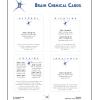
Crossing the Synaptic Gap
Source Institutions
In this neuroscience activity, learners conduct a simulation to demonstrate how multiple incoming signals influence the action of neurons.

The Geophysical Light/Dark Cycle
Source Institutions
This is an activity (located on page 131 of the PDF) related to sleep and circadian rhythms as well as space travel.

Right Foot/Left Foot
Source Institutions
In this activity (2nd on the page), learners conduct a series of tests to find out which foot is more dominant. In other words, are they right-footed or left-footed?
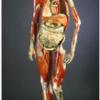
Body Parts
Source Institutions
In this online game, learners test their knowledge of human anatomy.

Screen Time
Source Institutions
This game asks you a series of questions about how much time you spend in front of a screen, not being active.
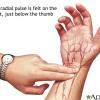
The Pulse of Gravity
Source Institutions
In this astronomy activity (page 3 of the PDF), learners will examine the effects of gravity on a person’s pulse and explore how gravity can differ from planet to planet.

Pupil
Source Institutions
In this activity, learners explore their eye pupils and how they change.
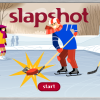
Slap Shot
Source Institutions
How quick are your reflexes? In this online game, you are a hockey goalie defending quick slap shots. Learn about reaction time, muscle memory, and reflexes.

In the Middle
Source Institutions
In this game-like activity (5th activity on the page), learners explore their auditory acuity as well as the importance of having two ears.

Bronx Cheer Bulb
Source Institutions
In this activity, learners observe what happens when they give a light source like a neon glow lamp a "Bronx Cheer." The lights appear to wiggle back and forth and flicker when learners blow air throu
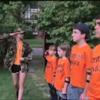
Exercise and Memory
Source Institutions
This activity (page 1 of the PDF under SciGirls Activity: Exercise and Memory) is a full inquiry investigation into the effects of exercise on short term memory.

False Memories
Source Institutions
Use this activity (10th on the page) to help learners explore memory and how sometimes your brain makes up its own memories. Learners will read and try to remember the words in list #1.
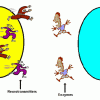
Synaptic Tag
Source Institutions
In this outdoor activity, learners review the parts of the synapse and their functions by playing a game.

Open Heart: Disease and Diagnosis
Source Institutions
In this online activity about heart disease, learners will pick one of three patients (based on actual patient histories) and help a cardiologist diagnose and prescribe treatments for him or her.
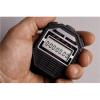
Built in Stopwatch
Source Institutions
In this activity (3rd on the page), learners investigate circadian rhythms by examining how well people do with estimating time.
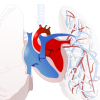
Construct a Heart Circulation Model
Source Institutions
In this online activity about anatomy, learners will correctly order the path blood takes through the heart in order to absorb oxygen to deliver to the rest of the body.
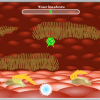
Virus Lander
Source Institutions
Can you avoid the body's immune system and make someone sick? Play this online game in which you go inside a human body to explore how viruses attack cells in the body.

Olympic Track Meet
Source Institutions
In this activity, learners discover how exercise helps keep the body healthy. Learners increase their heart rates by running and understand how running fast versus walking affects their pulse rates.
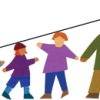
Line Up: Using Math To Stand In Line
Source Institutions
Put math of measurement into lining up — and make waiting in line fun. Choose a size characteristic that learners can physically compare, such as foot length or hair length.
Special Snack: Budgeting for Health
Source Institutions
In this activity, learners will plan a snack within a budget. With a $20 limit (theoretical) to spend on snack for everyone, learners look over grocery store circulars and make their shopping lists.
